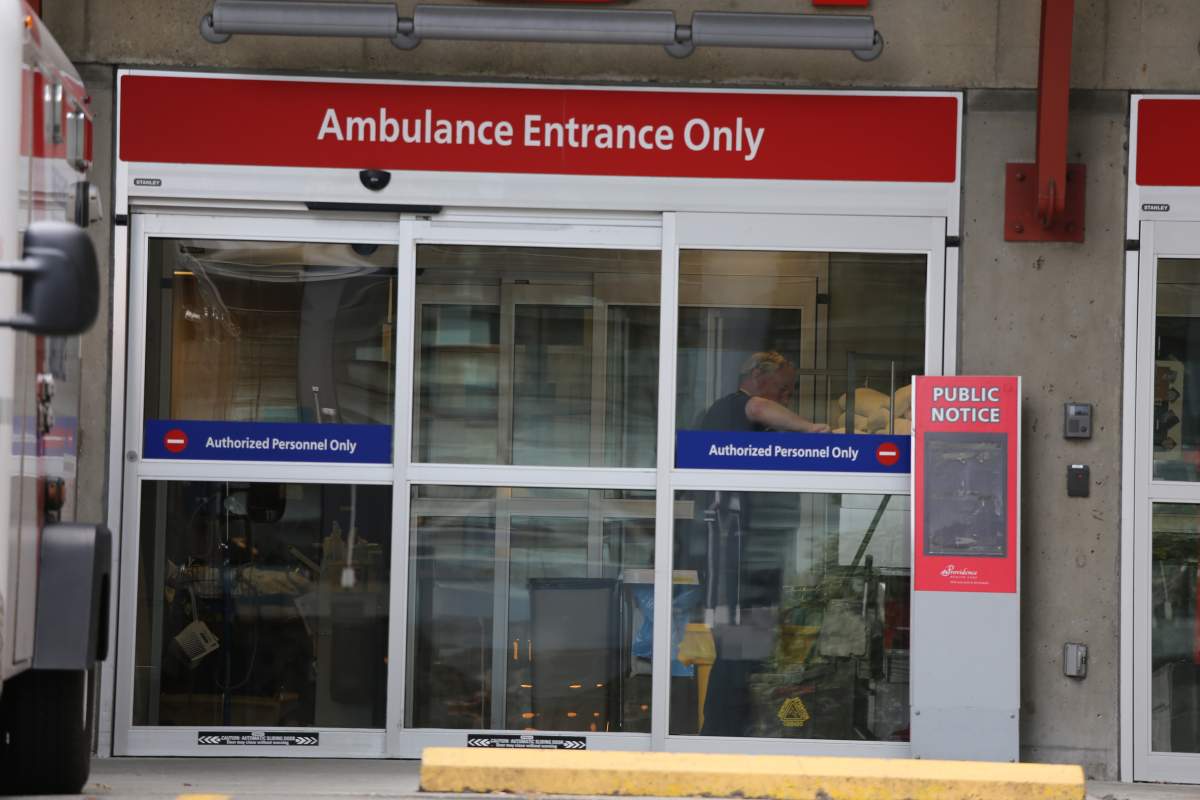Seniors living in private care facilities are 54 per cent more likely to die in hospital than seniors living in facilities operated by a health authority.

The findings are part of a new report by the province’s seniors’ advocate that looked into comparisons between the two types of homes for seniors.
Coverage of seniors in B.C. on Globalnews.ca:
“Hospital congestion and costs are increasing and improving the care and quality of life for seniors in residential care is a goal we all want to achieve,” seniors advocate Isobel Mackenzie wrote in the report.
“Looking at the evidence to guide our efforts and focus our priorities will be the best path forward to needed systemic change.”
The report found that those living in private care facilities were also much more likely to be hospitalized, sent to the emergency department or spend longer in hospital.

Get weekly health news
Mackenzie decided to look into the issue after front line staff at six different B.C. hospitals made similar complaints that care homes in their areas were sending residents to the emergency department unnecessarily.
“It is important to understand that a potentially avoidable trip to hospital for a frail senior carries a risk often equal to the risk of not going to the hospital when necessary,” the report said.
“Any transfer to an emergency department or stay in hospital is likely to be stressful, most particularly for those with dementia, hearing or visual challenges, and those who may not understand why they are being transferred.”
LISTEN: B.C. Care Providers Association CEO Daniel Fontaine speaks to CKNW’s Simi Sara about the report
The Office of the Seniors Advocate monitors and reports on issues related to the province’s elderly population.
Mackenzie’s latest report also concluded that a reduction in the hospitalization of public care home residents could save B.C.’s health care system $16 million every year, free up 15,481 hospital beds each year and improve health outcomes for frail seniors.
“Trying to pinpoint the exact reason for the underperformance of the contracted care facilities is difficult and indeed it is likely multifactorial,” the report read.
“To get the much-needed answers, we must do additional research and analysis, and this requires more and better information than we currently have on staffing differences between the contracted care facilities and the public facilities.”
The B.C. Care Providers Association was not consulted for the report, nor did it see a copy until it was released publicly on Wednesday.
Daniel Fontaine, the association’s CEO, said the report only looked at a small number of overall visits and didn’t specify the source for all of its data.
“I can’t find citations for any sources,” Fontaine said.
“There is a lot of data in there in terms of percentages but we don’t know where all the data is coming from and that is concerning.”
BC Liberal seniors’ critic Joan Isaacs said she is glad the report pointed out that there is no statistically significant difference between contracted long-term care homes and those operated by health authorities.
“It’s important to note that the report suggests further studies are warranted and we agree that we need to dig much deeper before drawing conclusions and making recommendations that will impact the long-term health and well-being of seniors,” said Isaacs.
- Health Canada warns of fake semaglutide drugs, cites ‘product safety’ risks
- Virtual reality helping Peterborough seniors connect, experience the world
- Endometriosis care delays force Alberta woman to seek help abroad: ‘Just want my life back’
- Flu cases, hospitalizations continue to fall after 3-year peak over holiday













Comments